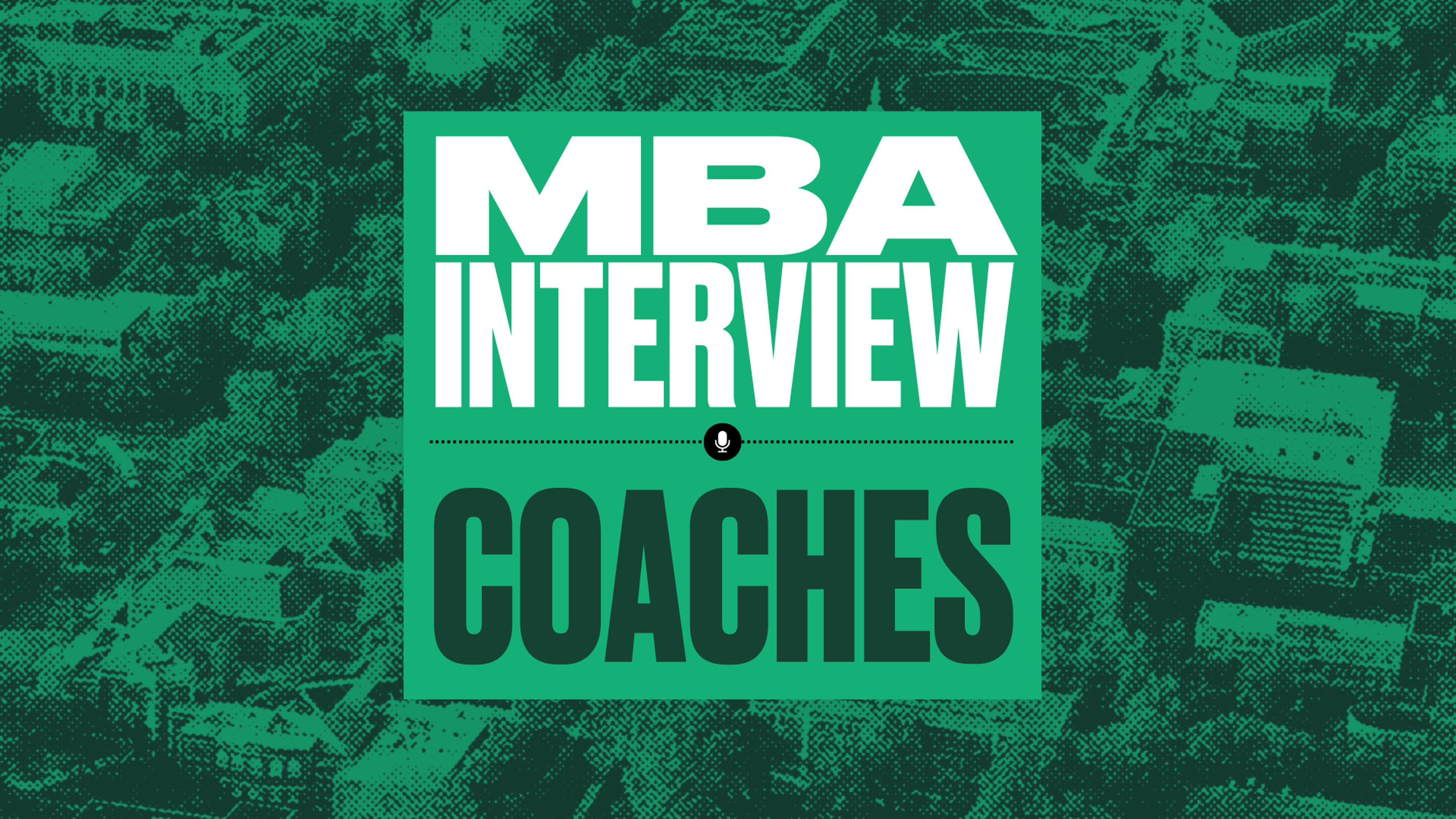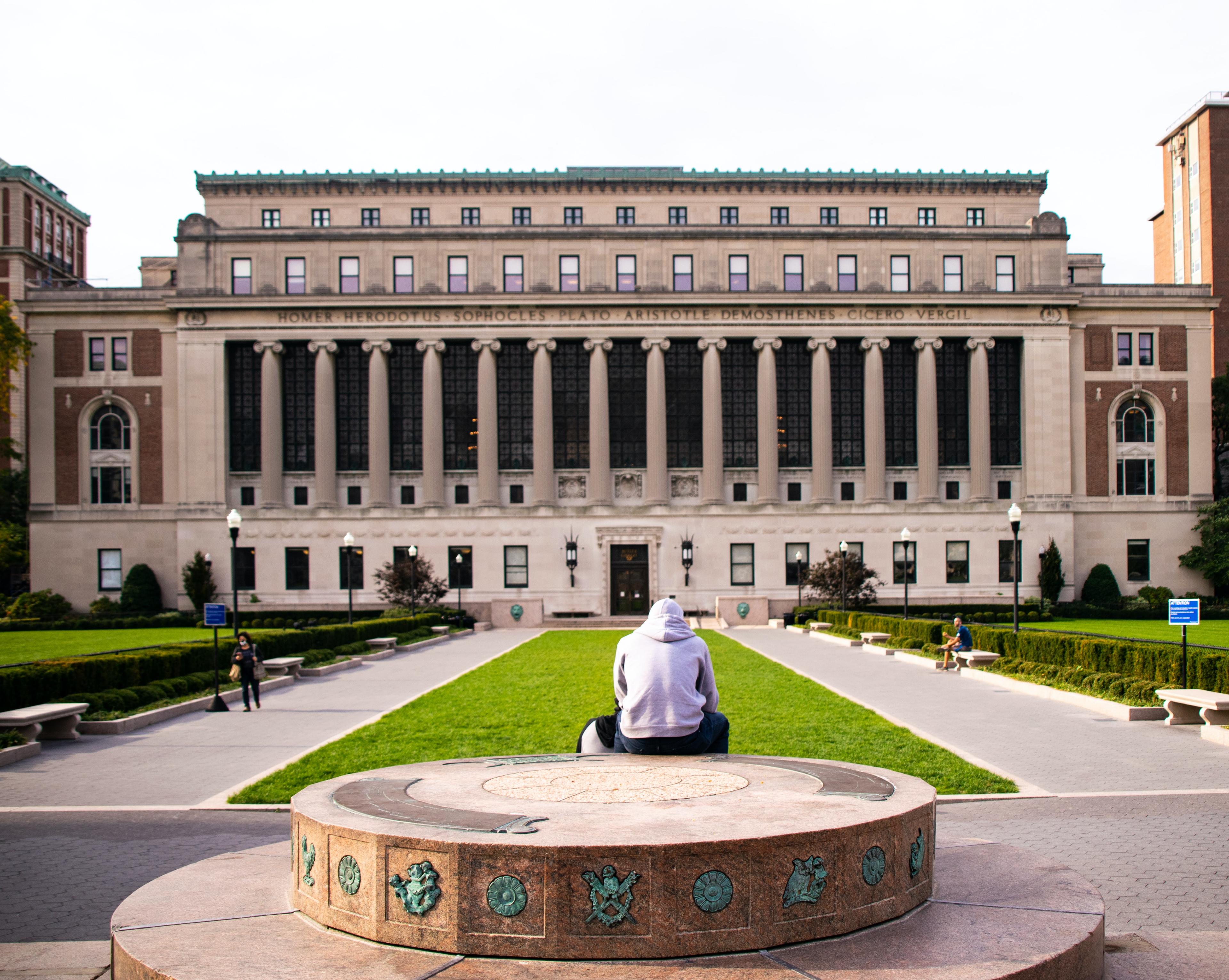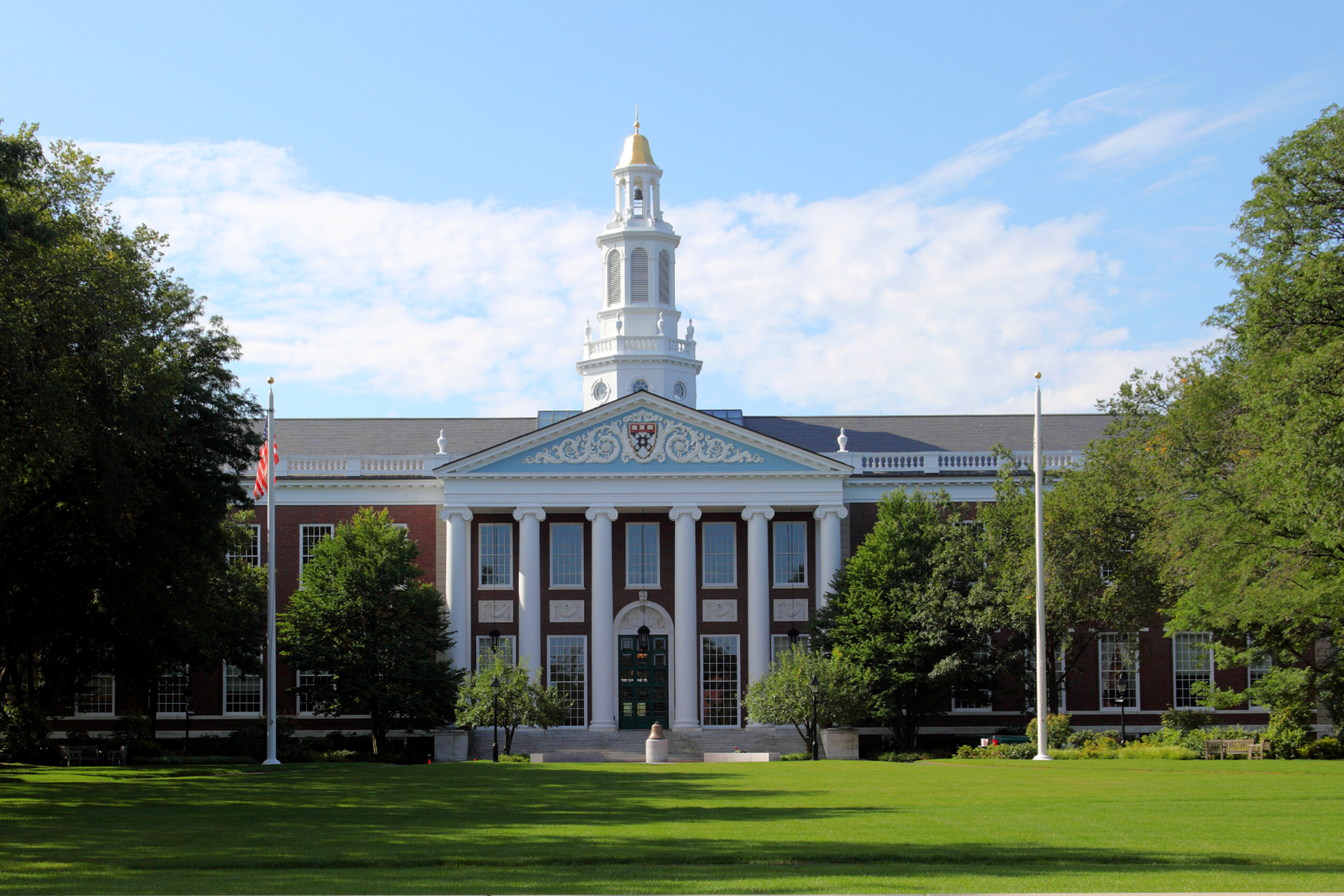MBA Interviews: What to Expect, How to Prepare, and How to Stand Out (2025)
Applying to top business schools? Here's how to ace your MBA interview, with expert tips & tricks, as well as real-life interview questions (and answers).

By Laura N.
Non-traditional Candidate Expert | M7+ | Ad Com | Tech + Industry Exp
Posted July 9, 2025

Table of Contents
Free Event

Featuring Horatiu S.
Profile Power: A LinkedIn Profile That Gets You In
Starting Tuesday, September 2
11:00 PM UTC · 45 minutes

Featuring Horatiu S.
You’ve made it past the GMAT, essays, and rec letters; now comes the most human part of the MBA application: the interview. It’s your chance to move beyond the paper version of yourself and show admissions who you really are. But unlike a case comp or client pitch, there’s no script. Just 30–60 minutes to communicate your story, your goals, and why you belong in their MBA degree program.
I am a former MBA admissions officer and interviewer who’s spent the last 15 years helping 500+ candidates navigate the application process, ace their interviews, and get into top programs. In this guide, I will break down exactly what to expect, how top schools structure their interviews, and how to prepare with purpose, so you walk in calm, clear, and ready to own the conversation.
What is the MBA Interview?
The MBA admissions interview is often the final step in the application process, but it’s far more than a formality. It’s your opportunity to show admissions committees who you are beyond your resume, test scores, and essays, and to demonstrate the self-awareness, poise, and communication skills required for success in an MBA program and in business leadership.
Everything else in your application goes on a piece of paper; the MBA interview is your chance to show up as a real candidate, your opportunity to make your two-dimensional application come to life.
An interview request means the school is interested and thinks you have the intelligence and career potential to attend their program. In other words, it’s a great sign. The interview is their way of assessing whether you're a good fit for their program, as a human being.
I've collaborated with a range of applicants, and have had great success with those from more traditional backgrounds seeking a way to stand out among a sea of qualified peers, as well as those from non-traditional backgrounds who need guidance articulating how their talents and aspirations will fit into an MBA class. If you’d like one-on-one support with your interview or application, please reach out. I’d love to help you get admitted to your dream program.
When Should I Start Prepping for My MBA Interview?
Many candidates will wait until the last minute to prep for their MBA admissions interview. Don't make that mistake! Ideally, you'll start preparing well before you receive an interview invitation. Generally, it's a good idea to start researching and preparing for your interview once you've submitted your application. Some prep is naturally included in the application process, too. Knowing your story, your “Why an MBA?”, and “Why this school?” will help you prepare thoughtful interview answers.
When you receive an interview invite, that’s when you’ll want to start prepping more intensively – ideally, with a mock interview. Mock interviews are the number one most effective mode of preparation, especially if you do it with someone who knows what to screen for and who can help you workshop your answers, like an admissions coach. However, even a mock interview with a friend will put you in a better position than not doing one.
As with most components of your application, you want to be proactive, not reactive!
Read: MBA Interviews: Six Admission Consultants’ Best Advice
How to Prepare for Your MBA Admissions Interview
Research the School
Just as every MBA program is different, the interview at each MBA program is different. Each school has specific objectives and formats for its interview. It's critical to understand these specifics so you can set yourself up for success.
A good first step is to visit the admissions section of the program’s website. Many schools outline the exact format and provide interview techniques and tricks directly from the faculty or Assistant Director of Admissions. Look through the school’s values, student profiles, and any other information listed.
Consider the information you learn from the program’s website as table stakes. It's what every other applicant should be aware of, so it's important to go a step further to gain more insight.
The best way to do this is to talk to people with real insight into the program. Reach out to current students and/or alumni to see if they'd be willing to share their experiences or offer any advice. Use LinkedIn to find people with some kind of connection to you – perhaps someone from your alma mater, someone with a similar career trajectory, someone who played the same sport as you, or someone who volunteered at the same organization. Reach out, let them know you’re a prospective applicant, and ask if you can set up a brief chat to learn from them. Most times, you'll find people very willing to share their experiences. Make sure to prepare thoughtful questions and show your gratitude for their time during and after the call.
Other ways to dig deeper include the following:
- Look through the curriculum, professors, clubs, student orgs, community events, etc. to learn how you would fit into the campus. What would you bring to the class? Where will you spend your time?
- Read whatever you can find about the program. There is a lot of information online that isn’t listed on the school’s website.
- Take a tour of the campus, if you’re in a position to. You’ll get a feel for what the school actually feels like and have a tour guide from whom you can get more questions answered.
Understand the Types of MBA Interviews
Once you've done your initial research, it's important to get acquainted with the different types of interview formats. Here's a primer on some common varieties.
Invite Only vs. Everyone
Some programs prefer to interview only those candidates who have a good probability of admission based on their application. Harvard Business School and MIT Sloan are examples of this preference. Getting an interview is a good sign, but by no means a guarantee of admission.
On the other hand, some programs consider the interview a key component of the overall application and therefore interview as many applicants as they can. Kellogg is one such program.
Blind vs. Not-Blind
The next difference in interviews is how much the MBA admissions interviewers know about you before the interview.
Some programs are blind, meaning that the interviewer hasn’t read your application or has only received a portion of it, usually the resume. In this case, you have the opportunity to show who you are from a relatively clean slate. This also means you have a lot of information to convey in a limited time, so being succinct and cogent in your answers really matters here.
Other programs are not blind, meaning that the interview is well-versed in your application. They will likely come prepared with specific questions related to your professional or educational background. Many programs will go a step further and pair you with an interviewer who has experience in your current or desired industry. You can expect very specific questions to gauge your understanding of the details of your experience.
Led by Admissions Committee vs. Alumni vs. Second-Year MBAs
Another difference in interviews is who is conducting the interview. Some programs have only their MBA admissions committee interview applicants. Other programs involve alumni to act as MBA admissions officers. Still, others use current students, typically second-year MBA candidates, to conduct interviews. Some schools stick to one of these whereas others will include all three.
In any case, expect the interviewer to have a vested interest in protecting the reputation of the program. Understand that they will be asking themselves, “Is this a person I would be happy to consider a classmate or fellow alum?” and “Will this person make the school better?” Ultimately, these are the questions you're trying to answer with a resounding, “Yes!” in your interview.
Video vs. In-Person
The final variety we’ll cover is where the interview is held. Before COVID, many schools preferred in-person interviews. These were conducted either on campus or at a chosen location with local alumni. Since COVID, many schools are opting for remote interviews online via Zoom or some other teleconference provider. Make sure you know which your target program is offering, and prepare accordingly.
One-on-One vs. Groups
Most interviews are one-on-one, but there are exceptions. Wharton uses a Team-Based Discussion (TBD) followed by a short individual interview. The TBD assesses your ability to collaborate, build on others’ ideas, and think strategically in a group setting.
MBA Interview Structures of the M7 Business Schools
Now that I’ve covered the basics, let's get into some details about specific schools, particularly ones with unique or distinctive interview protocols.
Note: the information below stays at a high level; it's not a replacement for your own research and thoughtful approach.
| School | Interview Format | Length | Interviewer(s) | Tips |
|---|---|---|---|---|
| Harvard Business School (HBS) | Application-based, in-depth questions on your application and experiences | ~30 minutes | Admissions committee member | Prepare for rapid-fire questions; know your application inside and out and be prepared to answer “Why?” |
| Stanford GSB | Behavioral questions focusing on past experiences | ~45 minutes | Alumni | Be ready to discuss specific leadership and team experiences; interviews can be extensive |
| Wharton School | Team-Based Discussion (TBD) followed by a one-on-one interview | 35 minutes (TBD) + 10 minutes (individual) | Admissions committee member or second-year student | Practice collaborative problem-solving and be prepared to articulate your interest in Wharton |
| Chicago Booth | Blind interview; questions about your resume and motivations | ~45 minutes | Admissions staff, student, or alumni | Focus on clear communication of your goals and fit with Booth's culture |
| Kellogg School of Management | Blind interview, behavioral questions assessing teamwork and leadership | 30-45 minutes | Alumni, admissions officer, or student | Demonstrate self-awareness and provide specific examples of your experiences |
| MIT Sloan | Behavioral Event-Based Interview (BEI); deep-dive into past actions | 30-45 minutes | Admissions committee member | Prepare detailed stories highlighting leadership and problem-solving skills |
| Columbia Business School (CBS) | Blind, conversational interview discussing your background and goals | 30-60 minutes | Alumni or admissions committee member | Be ready to discuss your career trajectory and why CBS is the right fit for you |
Harvard Business School (Focused, Fast-Paced, Deep Dive)
- Type: Invite-only
- Interviewer: Conducted by an interview board, a group of individuals trained to conduct HBS interviews
- # of Interview Invites: ~20% (about 50-60% of invitees are then accepted)
- Format: Resume-driven, not blind, and approached like a case study. You will likely be asked very specific questions about small details on your resume. Get ready for a lot of “why?” questions. In-person or remote.
- Length: ~30 minutes
- Timeline: HBS interviews most applicants in October for Round 1 applicants, late January to early March for Round 2 applicants, and late May to June for deferred applicants
- A note from HBS on a unique part of its interview process:
- As part of the application process, you will be required to complete a Post-Interview Reflection. Here are a few details:
- The Post-Interview Reflection is not intended to be another formal essay. Think of it instead as a reflection after a meeting.
- We will be much more generous in our reaction to typos and grammatical errors than we will be with pre-packaged responses. Reflections that give any indication that they were produced before you had the interview will raise a flag for us.
- We do not expect you to solicit or receive any outside assistance with this exercise.
- Your Post-Interview Reflection is due within 24 hours of the conclusion of your interview. Let the interview soak in a little bit...no need to start writing your reflection right at the conclusion of your interview.
- There is a word guidance of 300-450 words for the Post-Interview Reflection.
- As part of the application process, you will be required to complete a Post-Interview Reflection. Here are a few details:
The HBS interview is application-based and conducted by someone from the admissions committee who has read your file thoroughly. It’s known for being intense, rapid-fire, and specific. Expect pointed questions about your resume, essay, and choices – e.g., “Why did you make this move?” or “Why not pursue X instead?”
Be ready to defend your decisions, explain your motivations, and offer clear reasoning for every part of your journey. You’ll need to demonstrate strategic thinking and self-awareness under pressure.
HBS also uniquely requires that applicants submit a reflection within 24 hours of their interview. Once the interview is complete, you’ll receive an email with instructions and the link to submit. See more here.
Stanford GSB (Reflective, Behavioral, Values-Driven)
- Type: Invite-only
- Interviewer: Conducted by trained alumni or an admissions officer
- # of Interview Invites: ~900 people (in recent years, there have been around 6000 applicants so Stanford interviewed around 14-15%)
- Format: Behavioral-driven; remote or in-person
- Length: ~45-60 minutes
- Timeline: GSB interview invitations will go out late September to mid-November for Round 1 applicants, mid-January to mid-March for Round 2 applicants, and late April to mid-May for Round 3 and deferred applicants
- A note from the GSB page on interviews:
- We conduct a competency-based behavioral interview to gain a deeper understanding of what you have done and how you have done it. We focus on your past actions, rather than on hypothetical situations, and invite you to discuss meaningful professional or community-based experiences you’ve had in the past few years.
Stanford’s interview is conducted by alumni and leans heavily on behavioral questions and deep self-reflection. You’ll be asked to walk through meaningful experiences and articulate what shaped your values, leadership style, and personal growth. They’ll be looking for lessons learned, thoughtful preparation, and meaningful questions.
Expert Tip: Prepare stories that show transformation. GSB values authenticity, introspection, and emotional intelligence over polish. They want to know that you have self-reflected and have thoughtful, deep responses.
Wharton (Collaborative, Structured, Two-Part)
- Type: Invite-only
- Interviewer: Admissions committee
- # of Interview Invites: About 40% of Wharton applicants are invited to interview, and roughly one in three of those receives an offer of admission
- Format: Group, a team-based discussion (“TBD”) with 4-5 other applicants, followed by a short one-on-one with the admissions officer
- Length: 45 minutes (35 min. with the group followed by a 10 min. one-on-one)
- Timeline: Around late October for Round 1 applicants, mid-February for Round 2 applicants, mid-April for Round 3 applicants, and late May for deferred applicants
- A note from the Wharton page on interviews:
- The Team-Based Discussion (TBD) is meant to model the highly collaborative nature of the Wharton MBA environment in order to identify characteristics (communication style, level of engagement, leadership abilities, decision-making process, etc.) that we believe contribute to the success of a Wharton student.
Wharton’s interview stands out for its Team-Based Discussion (TBD) format, where you work with 4-5 other applicants to solve a problem. It’s followed by a 1:1 interview focused on your contribution to the group and your interest in the school. This format assesses team dynamics, listening skills, and leadership under ambiguity.
Expert Tip: Practice speaking up without dominating, be a team player. Wharton wants students who will be positive forces in the community – people who have things to add, uplift others, and contribute to the broader group. Being overly loud, opinionated, or forceful will not look good.
Kellogg (Teamwork, Collaboration, and Values-Based)
- Type: Kellogg invites almost everyone to interview
- Interviewer: Admissions committee, alum, or a second-year student
- # of Interview Invites: 85-90% or more of applicants are extended an interview request
- Format: Blind, based only on the resume; typically conducted virtually
- Length: ~30-45 minutes
- Timeline: Applicants schedule their own interviews within six weeks of the application deadline
- A note from Kellogg on interviews:
- Due to the high demand for interviews and limited availability of interviewers, you may receive an interview waiver. If your interview is waived, the admissions committee may contact you if further information is needed to make a decision on your candidacy.
Booth (Analytical, Logic-Driven)
- Type: Invite-only
- Interviewer: Admissions committee
- # of Interview Invites: 20-25% of applicants
- Format: Virtually, scheduled on Central time
- Booth's interview is commonly referred to as a “behavioral event-based interview” – questions almost exclusively focus on your past actions, rather than hypotheticals. They want to know why you made the decisions you did.
- Length: 30-45 minutes
- Timeline: Invitations are sent out on a rolling basis until the decision deadline
- A note from the Booth page on interviews:
- Those invited to interview will be asked to respond to two additional written questions prior to the interview. Details for submitting your essay will be included in the interview invitation.
Chicago Booth interviews are known for being intellectually rigorous but conversational. Conducted by alumni or second-year students, the interview often includes behavioral questions designed to test how you think, solve problems, and reflect. Booth values introspection, so expect follow-ups that dig deeper into your motivations, decisions, and values. Come prepared to discuss “why Booth” in detail, and be ready to showcase both analytical thinking and personal maturity.
Columbia (Conversational, Goal-Oriented)
- Type: Invite-only
- Interviewer: Usually an alum, occasionally an admissions officer or second-year student
- # of Interview Invites: ~50% of applicants
- Format: Blind, based only on the resume; behavior-focused questions
- Length: 45 minutes
- Timeline: Invitations are sent out on a rolling basis within six weeks of the application submission
The Columbia MBA interview is fast-paced, professional, and typically conducted by an alum. It closely mirrors a job interview, with a strong emphasis on your resume, post-MBA goals, and why Columbia specifically. CBS wants to know that you're recruiter-ready and have a clear plan for leveraging New York City. Be concise, polished, and intentional, and prepare for a few curveball questions that test how well you know the program and how you’d contribute to its community.
MIT Sloan (Behavioral Event Interview)
- Type: Invite-only
- Interviewer: Admissions committee
- # of Interview Invites: 20-25% of applicants
- Format: Virtually, scheduled on East Coast time
- Sloan’s interview is commonly referred to as a “behavioral event-based interview” – questions almost exclusively focus on your past actions, rather than hypotheticals. They want to know why you made the decisions you did.
- Length: 30-45 minutes
- Timeline: Invitations are sent out on a rolling basis until the decision deadline
- A note from the MIT page on interviews:
- Those invited to interview will be asked to respond to two additional written questions prior to the interview. Details for submitting your essay will be included in the interview invitation.
Sloan uses a unique Behavioral Event Interview format. It’s deeply structured and focused on how you behaved in very specific past situations. Interviewers will probe with follow-ups like “What exactly did you do?” or “What did you say next?” No fluff here. You’ll need detailed, specific stories with clear actions, results, and reflections. Prepare 6-8 well-structured examples in advance.
Common MBA Interview Questions
All right, now that you’re familiar with tips and strategies to conquer MBA interviews, it’s time to prep you with some common MBA interview questions. Here are some sample MBA interview questions – this list isn't comprehensive, but it will give you an idea of what you can expect.
And a quick pro tip: The first question you will undoubtedly get is: “How are you doing?” Of course, this is just the start of a conversation, but don't treat this as a formality. Don’t just say “Fine.” That's a dead end, and you want to make sure that your conversation with the interviewer is as impressive and memorable as possible. Come up with another answer to build rapport and connect with your interviewer. It's also a chance to shake off some of those early interview jitters. Be honest. Be genuine. Show a little personality, then you can kick off the interview on the right foot.
Getting to Know You
Whether the interview is blind or not, you will be asked to describe yourself. Be prepared to talk about who you are, specifically those characteristics that define you and differentiate you from others.
- Tell me a little bit about yourself. / Walk me through your resume.
- Why do you want to pursue an MBA degree?
- Why did you apply to this program? What other MBA programs have you applied to?
- What questions do you have for me? (usually reserved for the end of the interview)
Behavioral Questions
You'll almost certainly encounter situational MBA interview questions. These are used to explore how you have reacted to various situations in the past, either personally, academically, or professionally. These can be questions like:
- Describe a time when you were forced to make an unpopular decision.
- Describe a time when you were faced with an ethical dilemma.
- Describe a time when you had to make a decision with limited information.
- Describe a time when you had to persuade team members to do something your way (and they didn't want to).
- Describe a time when you had to adapt to an opinion or idea different from your own.
- Describe a time when you had to step up in an area outside of your authority.
Questions About the Program
Certainly, interviewers will want to know why you want to be in their program. These questions might be phrased like:
- Why did you choose to apply to this program? / Why this school?
- How does this program fit into your career aspirations?
- If shifting careers:
- Why do you want to change industries/careers?
- Do you need an MBA to shift to that field?
- What do you anticipate will be the major challenges in this program for you?
Spoiler alert: “Because you’re highly ranked” is not a good answer. Be prepared to discuss your career goals in detail. This includes both short-term and long-term goals. If you don’t have a clear career trajectory mapped out, that's okay — share what you do know about what you want to do with your career and explain where you still have gaps.
Probing Questions to Test Your Knowledge and Self-Awareness
Many programs will throw in questions designed to cut straight to who you are as a person. These might sound like:
- What is the biggest problem your current CEO is facing?
- How would your friends describe you in three words?
- What is your biggest weakness?
- Tell me more about [bullet/project] I see on your resume. Why did you do that? What was the result?
Curveballs
Finally, know that there are scenarios you simply cannot prepare for. Some interviewers or programs may throw in random or tough questions like “If you could be any animal, what would you be and why?” or “If you could start your own business, what would it be?” You can't prepare for these, and that's by design. These questions are meant to test how you think on your feet. Rest assured, there is no right answer to questions like these. Remember, a confident mind is a nimble mind, so give yourself a moment to think and be yourself.
My Expert Tips on Acing Your MBA Interview
The MBA interview is your final opportunity to shift from “impressive on paper” to “we need them in the class.” Most applicants think interviews are about answering questions. They’re not. They’re about making the interviewer believe three things: you have a compelling story, you will thrive in business school, and you will be an asset to the community for years to come.
For personalized help picking the right stories, practicing your answers, and otherwise preparing, reach out to me. As a former admissions officer and professional MBA coach, I’ve interviewed and coached hundreds of applicants, and I’d love to help you ace yours.
Prioritize depth over polish.
Too many candidates show up perfectly rehearsed and, unfortunately, this often comes off as forgettable. AdComs have read your resume. They want texture and personality, not a script. Prepare stories that show complexity, growth, judgment, and values. When asked about a challenge, don’t just focus on what you did. Focus on how you thought. What was hard? What tradeoffs did you navigate? What did you learn about yourself? A great answer is rarely about what happened: it’s about why it mattered and what you learned.
Know your “narrative spine” cold.
Strong candidates don’t just tell stories, they tie everything back to a coherent arc. If someone heard your answers back-to-back, would a clear throughline emerge? You should be able to anchor any question (“Why an MBA?”, “Why now?”, “Tell me about yourself”) back to your values, career goals, and sense of purpose. If it sounds like you’re bouncing from bullet point to bullet point, you haven’t done the deep work of finding that connected story.
Treat the interview like a conversation.
Every interviewer is evaluating not just what you say, but how you say it. Do you come across as someone your classmates would want to study, lead, and spend time with? Great interviewees know how to be high EQ and high clarity. They listen actively, engage naturally, and speak like a future peer, not like a rehearsed candidate.
Pre-empt the unspoken question, “Why YOU?”
Even when it’s unspoken, your job is to answer: Why you, for this program, at this moment in your journey? Make sure every answer gives the interviewer more evidence that you’re aligned with the school’s culture and mission. That might mean referencing specific classes, professors, or student groups but only if you’ve done the research and it’s organic. Avoid name-dropping. Instead, show how you’ll contribute and again, get as specific and personalized to your background as possible.
Prepare thoughtful questions to ask your interviewer.
The questions you ask are often as telling as the answers you give. They signal your curiosity, maturity, and genuine interest in the program. At all costs, avoid generic questions you could find online. Instead, tailor your questions to the interviewer’s background (if known), recent program developments, or areas of the MBA that align with your goals. Aim for questions that continue the dialogue; think: “What kind of student tends to thrive here but sometimes gets overlooked in the admissions process?” or “What’s a tradition or moment at [School] that made you feel most connected to the community?” You should also tailor your questions depending on if you’re talking to a student, alumni, or AdCom. Each will have different perspectives on the school.
Practice but don’t over-rehearse.
Mock interviews are essential. They help you refine your content, catch weak spots, and practice transitions. But over-rehearsing can really dull your authenticity and it’s obvious to spot. Great interviews feel alive, personal, and real. Practice just enough to feel fluent, not formulaic. Here’s a mock interview package, if you’re interested in working together.
What MBA Interviewers Are Looking For
You’ve probably heard phrases like “be authentic” or “show leadership”, but in the room (or on Zoom), what do those actually look like? Here’s what most MBA interviewers and admissions committees are assessing, and how to make sure you’re hitting the mark.
Do you have self-awareness? They don’t want overly-rehearsed, perfect-sounding answers. They want someone who can reflect on their own experiences with maturity. That means owning mistakes, showing how you’ve grown, and speaking in your natural voice, not MBA-speak. A great test: If someone who knows you well watched your interview, would they say, “Yeah, that’s them”?
Do you have leadership and influence? This means showing moments where you motivated others, drove change, or took initiative, even without authority. The best stories include tension: What was hard? What pushback did you face? What changed because of you?
Are you a good fit for the program? They want people who will thrive in their specific culture, not just any MBA. Your answers should show you understand how the school operates (collaborative, analytical, discussion-driven, etc.) and why that works for you. If it’s Kellogg, talk about teams. If it’s Booth, talk about inquiry. Make the fit feel mutual.
Do you have clear and realistic goals? You don’t need every detail locked in, but you do need a credible direction. Show that you’ve done the legwork to understand your post-MBA path, that it makes sense given your background, and that their school is equipped to help you get there.
Will you contribute to this class? MBA classrooms rely on peer learning. Interviewers are asking: Will this person raise the level of discussion? Will they be a valuable teammate? One way to show this is through your examples: Are you collaborative? Do you help others succeed? Do you bring in perspectives beyond your own?
Are you a good communicator? This isn’t about being slick, it’s about being clear, calm, and present. That includes pacing yourself, making eye contact (yes, even in a virtual interview), and actively listening. Strong candidates treat it like a conversation, not a monologue.
Common Mistakes to Avoid (and How to Fix Them)
I’ve helped thousands of applicants prepare for their MBA interviews. In such a high-pressure environment, it’s easy to forget what you’ve learned. Here are some of the most common mistakes I see. The best way to mitigate them is to practice ahead of time and do a mock interview.
1. Your answers are rambling or unfocused.
This usually happens when candidates don’t have a clear structure, or they try to say too much instead of saying the right thing. Long, meandering responses signal that you’re not fully in control of your message. Instead, practice using frameworks (like STAR or SCAR) to keep your stories tight and intentional. End every answer with a takeaway or reflection, don’t just trail off.
2. Your delivery is over-rehearsed or robotic.
You’ve practiced so much that your voice sounds memorized – or worse, inauthentic. This throws off interviewers fast. MBA programs want people who sound real, not rehearsed. Instead, practice your stories out loud in different ways so you stay fluent, not scripted. Record yourself. Ask: Does this sound like how I actually talk? If not, rewrite and simplify.
3. You dodge or half-answer questions.
It’s easy to start answering what you want to say instead of what was asked. Interviewers notice when you pivot too hard or miss the point entirely. Instead, train yourself to pause, clarify if needed, and then directly respond. If you realize mid-answer you drifted, course correct. Interviewers respect self-awareness.
4. Getting caught off guard by tough questions.
Questions like, “What’s your biggest weakness?”, “Tell me about a failure.”, “What would your team say is hardest about working with you?”, often throw off applicants. These aren't trick questions. Instead, build a library of 6-8 flexible supporting stories that you can adapt to different questions. Include moments of vulnerability, reflection, and mistakes, not just big wins.
5. Your answers are generic across schools.
Saying “I love the collaborative culture” won’t cut it when 15 other candidates said the same thing. Interviewers can tell when you’ve recycled responses for multiple schools. Instead, be as specific as you absolutely can be. If you’ve talked to students and alumni in the months leading up to the application, you should have a set of anecdotes and thoughts to draw from. Try and find things that are 1) not readily available online and 2) specific to you and your background/goals.
6. You overly work from notes or AI.
The consequence of over-using notes or AI to help with responses is that candidates can come off unprepared for the conversation and ill-equipped to communicate. It’s great to start with notes, but then practice without them. It’s more helpful to have prepared concrete examples that you can tailor to different questions. Mock interviews are extraordinarily helpful here as well.
Final Week Checklist: What to Review, Practice, and Pack
As a final step, shift from prepping content to polishing delivery. Make sure you have everything ready to go before the interview day so you can walk in fresh, prepared, and confident. Here are a few things to make sure you do ahead of time.
- Revisit your resume, essays, stories, and career goals so you can speak confidently without sounding scripted.
- Prepare a ~3 minute response to “Walk me through your resume” or “Tell me about yourself” that hits your highlights and sets up your goals.
- Run at least one mock interview with someone who will challenge your answers and push you on clarity, depth, or structure.
- Print your resume and prep your outfit (even for a virtual interview – you’ll feel more confident and polished).
- Re-review your school-specific notes and key talking points.
- Confirm all logistics: interview time, time zone, Zoom link, contact person, tech backups, device battery life, etc.
- Get a good night’s sleep and don’t over-cram; clarity and energy beat last-minute rehearsing every time.
- Pre-plan at least two strong questions for your interviewer, based on their background or the school, so you’re not scrambling at the end.
Business School Interviews: The Bottom Line
Remember, the interview is an opportunity for you to connect with a representative of your target MBA program and demonstrate your ability to communicate.
The interviewer is not looking for perfection; rather, he or she wants to understand how you'll connect with others and share your story, so that you'll be prepared to do the same once you land on campus.
If you follow the steps in this article and prepare in advance, you'll be in great shape for your MBA interview.
For 1:1 support on your MBA interview or any other part of the application, I’d love to help. As a former MBA interviewer and applicant, I’ve sat on both sides of the table – I know what these schools are looking for and how to help you adequately prepare. Book a free intro call on my profile to get started. Good luck, you got this!
Read next:
- How to Craft the Ultimate MBA Resume—With Examples
- How to Get the Perfect MBA Letter of Recommendation—With Examples
- How to Write a Powerful MBA Essay
- Giving Reflection the Time It Deserves in MBA Applications
- Rejected From an MBA Program? Here's What to Do Next
MBA Program Interviews – FAQs
What should I wear to an MBA interview?
- Business formal attire is generally recommended for MBA interviews, even if conducted virtually. For men, this typically means a suit and tie; for women, a suit or professional dress. Dressing professionally demonstrates respect for the interview process and helps make a positive first impression.
How long do MBA interviews typically last?
- MBA interviews usually range from 30 to 60 minutes, depending on the school and interview format. Some programs may have shorter interviews, while others, especially those with multiple components like team-based discussions, may take longer. It's advisable to confirm the expected duration with the admissions office or interviewer beforehand.
Can I take notes during the interview?
- While it's acceptable to have a copy of your resume and a few brief notes for reference, avoid reading directly from them. The interview should be a natural conversation. Taking occasional notes, especially when the interviewer provides information or asks if you have questions, is appropriate.
How soon after the interview will I receive a decision?
- The timeline for receiving a decision varies by school. Some programs provide decisions within a few weeks, while others may take longer. It's best to check the specific school's admissions timeline or contact the admissions office for an estimated decision date.
Is it appropriate to send a thank-you note after the interview?
- Yes, sending a thank-you note within 24 hours of the interview is considered good etiquette. For HBS, a post-interview reflection is required. It provides an opportunity to express appreciation, reiterate your interest in the program, and reflect on specific points discussed during the interview.

Written by Laura
5.0
(41)
I've led a multifaceted career path across the entertainment, tech, marketing, and consulting industries, with a particular focus on guiding MBA candidates toward their dreams. Early on, I recognized that I wanted to pursue marketing. To learn more about it, I networked, listened, pitched myself, and floated the idea of pursuing an MBA. I heard "no" more often than not, and I forged ahead. The University of Michigan - Ross School of Business's full-time MBA was a transformational experience, building my business foundation, practical experience, network, and confidence. Simultaneously, I started paying it forward to future MBA candidates. My professional and MBA admissions consulting experience make me uniquely qualified to support candidates seeking admission to top MBA programs to facilitate their professional and development goals. As a marketing professional, I've: 🧱 Established departments at 4 startups – from Series A to publicly held companies 📈 Generated demand for >50% of revenue across 2 organizations 🚀 Launched new products, features, and lines of service 💵 Served at 2 consecutive organizations with acquisition exits ↗️ Ascended to the VP of Marketing role on an executive leadership team As an MBA admissions consultant, I've: 🥇 Contributed to 2 leading MBA admissions firms 📝 Collaborated with >300 candidates applying to top MBA programs 🎓 Facilitated successful applications to all M7, Top 20 U.S., and Top 10 international MBA programs 💰 Enabled clients to earn millions of dollars in scholarship funding 💫 Co-founded a brand and earned consistent 5-star ratings from satisfied clients
Laura has helped clients get into organizations like:
Michigan's Ross School of Business
Duke's Fuqua School of Business
Darden School of Business (UVA)
The Wharton School (UPenn)
Haas School of Business (Berkeley)











